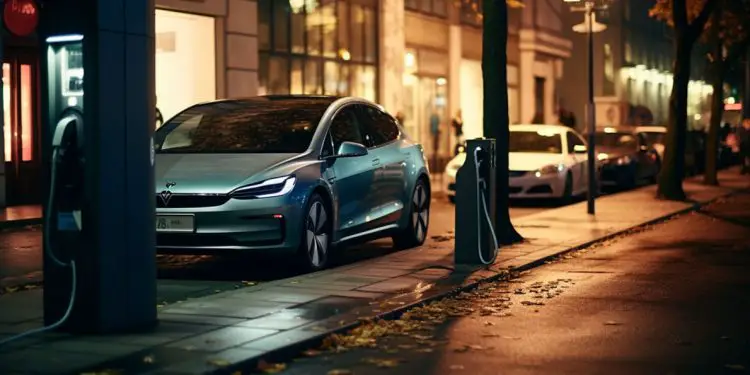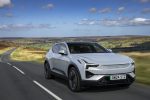Germany Sets a New Standard in Electric Vehicle Adoption: What Can the UK Learn?

Germany is making waves and setting new standards in the fast-paced world of electric vehicles (EVs). This development is not just a testament to Germany’s commitment to greener mobility but is also a reflection of a broader global trend: the electric vehicle revolution. As the UK ramps up its own electric vehicle adoption with the 2030 ban on petrol and diesel car sales looming, there’s a lot it can learn from its European neighbour. Keeping abreast with electronics engineering news, industry strategies, and government policies has never been more critical. But what exactly is Germany doing right, and how can the UK use this knowledge to boost its own EV adoption?
The Unstoppable Rise of EVs in Germany
Germany’s approach to EV adoption is multi-faceted, with the government playing a central role. In response to the growing environmental concerns and as part of its broader strategy to combat climate change and repair the economy, Germany has introduced a slew of initiatives and incentives to encourage citizens to make the switch to electric. Germany was heavily reliant on Russian energy, but is now making strives to cut down on gas and move on to sustainable means.
“A new law mandates that the expansion of wind power, solar energy, as well as electricity and hydrogen networks now take priority. We will make available no less than two percent of our country for wind power – with a minimum of red tape,” explains German chancellor Olaf Scholz, who has been ambitious in trying to reorient the economy. This has led to a new focus on EVs in the market.
Indeed, the incentives provided by the German government are among the most generous in Europe. With rebates of up to €9,000 for new electric vehicle purchases, it is clear that financial incentives have played a crucial role in Germany’s electric vehicle boom. This is paired with an ambitious plan for a nationwide charging infrastructure, aiming to eliminate ‘range anxiety’ and ensure that owning an electric vehicle is as convenient as a petrol or diesel counterpart. It’s certainly working, with EVs taking more than half of the German car market recently.
Pioneering Innovation Through Industry Partnerships
Germany’s electric vehicle surge is not solely a result of government incentives; it’s also a story of industry innovation and strategic partnerships. The country is home to some of the world’s most renowned automotive manufacturers, and they are deeply involved in this transformation. The manufacturers are working with the government to ensure the infrastructure is in place.
Moreover, collaborations between car manufacturers and renewable energy companies are becoming more prevalent. These partnerships aim to ensure that the increase in electricity demand due to electric vehicles is met with green, sustainable energy, thereby maximising the environmental benefits of EV adoption.
Keeping a Pulse on Electronics Engineering
As electric vehicle technology is rapidly evolving, keeping up-to-date with the latest developments in electronics engineering is imperative. This is a vital lesson that the UK can glean from Germany’s example.
For example, according to research from the Centre for Solar Energy and Hydrogen Research Baden-Württemberg (ZSW), around 830,000 new electric vehicles were registered in Germany last year, representing a significant leap in adoption. Behind this figure lies a wealth of engineering innovation, much of which is directly related to advancements in electronics.
“The figures show clearly that the global trend towards sustainable mobility continues unabated despite the many crises in 2022,” said Andreas Püttner (ZSW). “But if Germany wants to reach the target it has set itself, to have 15 million electric vehicles on the road by the end of 2030, the country will need to see at least twice as many new vehicle registrations as in 2022 every year.”
In the UK, staying informed through electronics engineering news can equip industry professionals, policymakers, and consumers alike with the knowledge they need to make informed decisions and to adapt to the fast-paced changes in the EV landscape. Regular updates on battery innovations, charging technologies, and emerging trends are not just beneficial; they are essential for those who want to stay ahead of the curve.
Policy Initiatives: Setting the Stage for Mass Adoption
One of the most striking aspects of Germany’s approach to electric vehicle (EV) adoption is its comprehensive and forward-thinking policy initiatives. In Germany, the government is not merely reacting to the rise of EVs; it is actively setting the stage for mass adoption.
The German Federal Government’s ‘National Platform for Electric Mobility’ is a prime example. Established as a strategic council, it involves stakeholders from politics, industry, science, and civil society, aiming to make Germany a leading market for electric mobility. This holistic approach ensures that legislation is both ambitious and grounded in the realities of technology, infrastructure, and consumer behaviour.
The UK, in mapping out its own journey toward an electric future, stands to gain from closely examining Germany’s policy initiatives. This includes not just the incentives for consumers, but also the framework within which car manufacturers and energy providers operate.
Charging Infrastructure: More Than Just a Numbers Game
Germany’s strategic approach to developing its charging infrastructure is another lesson for the UK. It is not just about the quantity of charging stations; the focus is also on their accessibility, reliability, and integration with other forms of transport.
Volker Wissing, Federal Transport Minister, emphasises the importance of these collaborations: “Our goal: to accelerate the expansion of charging infrastructure, simplify the charging process and thus make it easier for people to switch.”
In the UK, where concerns about charging infrastructure are a significant barrier to EV adoption, there is much to learn from this strategic, user-focused approach. From the placement of charging stations to the user interface of charging apps, every detail counts when it comes to encouraging people to make the switch to electric.
Consumer Education: Demystifying Electric Vehicles
Despite the clear environmental and long-term financial benefits of electric vehicles, many consumers still view them as a complex, unfamiliar technology. Germany has addressed this through extensive education and outreach programs, aimed at demystifying EVs and showcasing their benefits. They have always made their intentions clear, and informed the public about each step.
Environment Minister Steffi Lemke, highlights this point: “The new German government stands behind the [European] Commission’s draft and thus fully supports the end of the internal combustion engine [for cars and vans] in the EU from 2035.”
For the UK, where misconceptions about EVs still loom large in the public consciousness, such educational initiatives could play a critical role in accelerating adoption. By following Germany’s lead and implementing comprehensive and clear public education strategies, the UK could smooth the path for consumers considering the transition to electric.










